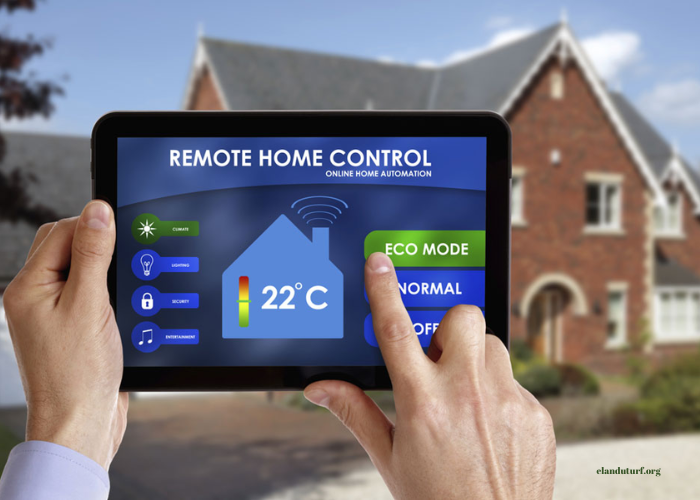In recent years, the concept of smart homes has evolved from a niche market into a mainstream reality. As technology continues to advance at an unprecedented pace, smart home technology is becoming an integral part of modern living, promising enhanced convenience, security, and energy efficiency. At the heart of this revolution lies artificial intelligence (AI), which is transforming how we interact with our homes, automate daily tasks, and optimize our lifestyles. This article explores the various dimensions of smart home tech and the role of AI in creating a connected lifestyle.
Understanding Smart Home Technology
Smart home technology encompasses a range of devices and systems that connect to the internet, allowing homeowners to monitor and control various aspects of their homes remotely. This includes everything from lighting and temperature control to security systems and appliances. The goal of smart home technology is to provide homeowners with increased control, convenience, and energy efficiency, all while enhancing their overall quality of life.
Key Components of Smart Home Technology
- Smart Devices: Smart devices include smart thermostats, smart lighting, smart locks, smart speakers, and more. These devices can be controlled remotely via smartphone apps or voice commands, allowing for greater convenience.
- Home Automation Systems: Automation systems enable devices to communicate with each other, creating a cohesive smart home ecosystem. This can include integrating devices from various manufacturers to work together seamlessly.
- IoT (Internet of Things): The IoT refers to the interconnected network of devices that communicate with each other over the internet. In the context of smart homes, IoT enables devices to share data and respond to user preferences, leading to a more personalized living experience.
- Data Analytics: Smart home devices collect vast amounts of data about user behavior and preferences. This data can be analyzed to optimize device performance, predict user needs, and enhance overall efficiency.
The Role of AI in Smart Homes
Artificial intelligence plays a crucial role in transforming ordinary homes into intelligent living spaces. By incorporating AI into smart home technology, homeowners can enjoy enhanced automation, personalization, and security. Here are some ways AI is revolutionizing smart home tech:
Intelligent Automation
AI-driven automation allows smart home devices to learn from user behavior and adapt accordingly. For example, smart thermostats can analyze patterns in heating and cooling preferences, adjusting temperatures automatically to save energy while maintaining comfort. Similarly, smart lighting systems can learn when to turn lights on or off based on occupancy patterns.
Example: Smart Thermostats
A prime example of intelligent automation is the Nest Learning Thermostat. It uses machine learning algorithms to understand your heating and cooling preferences over time. By analyzing your habits, it can optimize energy use and create a comfortable environment tailored to your lifestyle.
Voice Assistants and Natural Language Processing
Voice assistants such as Amazon’s Alexa, Google Assistant, and Apple’s Siri have become central to many smart home ecosystems. These AI-powered voice recognition systems allow users to control their smart devices using natural language commands, making technology more accessible and user-friendly.
Example: Voice-Controlled Home Automation
Imagine walking into your home after a long day at work and saying, “Hey Google, turn on the lights and set the thermostat to 72 degrees.” The voice assistant processes your request and communicates with your smart devices to create a welcoming atmosphere. This hands-free interaction enhances convenience and makes daily routines more efficient.
Enhanced Security
AI-powered security systems are changing the landscape of home security. These systems utilize machine learning algorithms to analyze video feeds, detect unusual activity, and send real-time alerts to homeowners. With smart cameras and motion sensors, AI can differentiate between normal and suspicious behavior, reducing false alarms and enhancing overall security.
Example: Smart Security Cameras
Ring and Arlo offer smart security cameras equipped with AI features that can identify familiar faces or recognize when packages are delivered. By sending instant notifications, these systems help homeowners stay informed and secure, even when they’re away.
Predictive Maintenance
AI can also play a vital role in predictive maintenance for smart home devices. By analyzing data collected from various sensors, AI can identify potential issues before they escalate, allowing homeowners to address problems proactively.
Example: Smart Appliances
Smart appliances like refrigerators and washing machines can monitor their own performance and alert users when maintenance is required. For instance, a smart washing machine might notify you when it’s time to clean the filter, preventing breakdowns and extending the appliance’s lifespan.
Benefits of Integrating AI in Smart Homes
The integration of AI in smart home technology offers numerous benefits for homeowners, contributing to a connected lifestyle that enhances convenience, comfort, and security.
Convenience and Efficiency
AI-powered smart homes can automate routine tasks, allowing homeowners to focus on more important activities. From managing schedules to adjusting temperatures, AI streamlines daily routines, enhancing overall efficiency.
Energy Savings
Smart home devices equipped with AI can optimize energy consumption, resulting in significant savings on utility bills. By learning user habits and adjusting settings accordingly, these devices promote sustainable living and reduce energy waste.
Enhanced Security
The ability of AI to analyze real-time data and detect anomalies significantly improves home security. Homeowners can feel more at ease knowing that their properties are being monitored by intelligent systems capable of alerting them to potential threats.
Personalized Experiences
AI can create personalized living environments by learning user preferences and adjusting settings accordingly. Whether it’s adjusting lighting for movie night or creating a morning routine with your favorite music and coffee brewing, AI makes homes more tailored to individual lifestyles.
Challenges and Considerations
While the integration of AI in smart home technology offers numerous benefits, it also presents challenges and considerations that homeowners should be aware of.
Privacy Concerns
As smart home devices collect vast amounts of personal data, privacy concerns are paramount. Homeowners must ensure that their devices are secure and that their data is handled responsibly by manufacturers.
Compatibility Issues
With a multitude of devices from different manufacturers, compatibility can be a significant challenge. Homeowners should consider investing in devices that adhere to common standards, such as Z-Wave or Zigbee, to ensure seamless integration.
Dependence on Technology
In a connected lifestyle, homeowners may become overly reliant on technology. It’s essential to strike a balance between automation and manual control, ensuring that individuals retain the ability to manage their homes without complete reliance on smart devices.
Cost of Implementation
While smart home technology can lead to long-term savings, the initial investment can be significant. Homeowners should carefully assess their needs and budget before making decisions about which smart devices to integrate into their homes.
The Future of Smart Home Technology and AI Integration
As technology continues to evolve, the future of smart home technology looks promising. Several trends are shaping the landscape of connected living:
Increased Interconnectivity
The future of smart homes lies in enhanced interconnectivity among devices. As more manufacturers adopt common standards, devices will be able to communicate seamlessly, creating a cohesive smart home ecosystem.
Advanced AI Capabilities
AI technology will continue to advance, enabling smarter homes capable of understanding and anticipating user needs. Machine learning algorithms will become more sophisticated, allowing devices to adapt to changing lifestyles and preferences.
Integration with Other Technologies
The integration of smart home technology with other emerging technologies, such as 5G and blockchain, will enhance performance and security. With faster internet speeds, smart devices will operate more efficiently, and blockchain can provide secure data transactions.
Focus on Sustainability
As sustainability becomes a global priority, smart home technology will increasingly focus on energy efficiency and environmental impact. AI-driven systems will optimize energy consumption and promote sustainable living practices.
Conclusion
Smart home technology, powered by artificial intelligence, is revolutionizing the way we live, offering unprecedented convenience, security, and energy efficiency. As we integrate AI into our homes, we are not just enhancing our living spaces; we are embracing a connected lifestyle that reflects our values and priorities. While challenges remain, the benefits of smart home technology are undeniable, making it an essential aspect of modern living. As we look to the future, the potential for smart home technology to enhance our lives is limited only by our imagination. With continuous advancements in AI and IoT, the possibilities for a connected lifestyle are endless, paving the way for a smarter, more efficient world.







